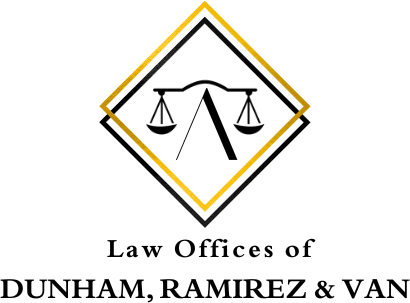Call us now:
Wills & Trusts
What is a Will?
A will, or last will and testament, is a legal document that outlines your wishes regarding the distribution of your assets and the care of any minor children upon your death. It allows you to:
- Designate beneficiaries: Specify who will receive your assets, such as property, money, and personal belongings.
- Appoint an executor: Choose a trusted person to manage and distribute your estate according to your instructions.
- Nominate guardians: Decide who will take care of your minor children if both parents pass away.
- Express your wishes: Provide specific instructions for your funeral arrangements or other personal requests.
Benefits of Having a Will
- Clarity and Control: Ensure your assets are distributed according to your wishes.
- Avoid Intestacy: Prevent the state from deciding how your assets are divided.
- Reduce Conflicts: Minimize potential disputes among family members.
- Guardianship Decisions: Make informed choices about who will care for your children
Creating a Will
To create a valid will, it must be:
- Written: Oral wills are generally not recognized.
- Signed and Witnessed: The will must be signed by you and witnessed by at least two individuals who are not beneficiaries.
- Sound Mind: You must be of sound mind and not under undue influence when creating the will.
What is a Trust?
A trust is a fiduciary arrangement that allows a third party, or trustee, to hold and manage assets on behalf of beneficiaries. Trusts can be created during your lifetime (living trusts) or established upon your death (testamentary trusts). There are several types of trusts, each serving different purposes:
- Revocable Living Trust: Allows you to retain control over the trust assets and make changes or revoke the trust during your lifetime.
- Irrevocable Trust: Generally cannot be modified or revoked, providing potential tax benefits and asset protection.
- Special Needs Trust: Designed to provide for a disabled beneficiary without disqualifying them from government benefits.
- Charitable Trust: Used to donate assets to charitable organizations while providing tax benefits to the donor.
Creating a Trust
To create a trust, you must:
- Choose the Type of Trust: Determine which type of trust meets your goals.
- Draft the Trust Document: Specify the terms, including trustee powers, beneficiary rights, and distribution instructions.
- Fund the Trust: Transfer ownership of assets into the trust.
- Appoint a Trustee: Select a trustworthy individual or institution to manage the trust.
Revocable Living Trust
A revocable living trust, is a legal document that places your assets into a trust for your benefit during your lifetime and specifies how they will be distributed upon your death. It allows you to manage and control your assets while alive and provides a seamless transition of those assets to your beneficiaries when you pass away, avoiding the probate process.
Key Components of a Living Trust
- Grantor: The person who creates the trust.
- Trustee: The individual or institution responsible for managing the trust assets. The grantor can act as the initial trustee.
- Successor Trustee: The person or entity who will take over managing the trust upon the grantor’s death or incapacitation.
- Beneficiaries: The people or organizations that will receive the trust assets.
Benefits of a Complete Living Trust Package
Avoid Probate
One of the primary advantages of a living trust is that it allows your estate to bypass the probate process, saving time and reducing legal costs. Your beneficiaries can receive their inheritance more quickly and with less hassle.
Privacy
Unlike a will, which becomes a public record upon your death, a living trust remains private. This ensures that the details of your estate and the distribution of your assets are kept confidential.
Incapacity Planning
A living trust includes provisions for managing your assets if you become incapacitated. The successor trustee can step in to manage the trust assets, ensuring your financial affairs are handled according to your wishes without the need for a court-appointed guardian or conservator.
Flexibility
A revocable living trust allows you to retain control over your assets during your lifetime. You can make changes, add or remove assets, and even revoke the trust entirely if your circumstances or wishes change.
Asset Management
With a living trust, you can designate a professional trustee to manage the trust assets, ensuring they are handled competently and according to your instructions. This can be especially beneficial for complex estates or when beneficiaries are not experienced in managing financial matters.
What’s Included in Our Complete Living Trust Package?
Our Complete Living Trust Package is designed to provide you with comprehensive estate planning services to ensure your wishes are clearly outlined and legally enforceable. The package includes:
1. Living Trust Document
This is the core document that outlines the terms of the trust, including the distribution of assets, trustee appointments, and any specific instructions you have for managing the trust.
2. Pour-Over Will
A pour-over will ensures that any assets not included in the living trust at the time of your death are “poured over” into the trust. This guarantees that all your assets are distributed according to your wishes.
3. Durable Power of Attorney
A durable power of attorney allows you to designate someone to make financial and legal decisions on your behalf if you become incapacitated.
4. Advance Healthcare Directive
Also known as a living will, this document lets you outline your healthcare preferences and appoint a healthcare proxy to make medical decisions if you are unable to do so.
5. Deed Transfer Documents
We prepare the necessary documents to transfer real estate into your living trust, ensuring that your property is included in the trust and avoids probate.
6. Trust Funding Instructions
We provide detailed instructions on how to transfer various types of assets (e.g., bank accounts, investment accounts, personal property) into your living trust.
7. Personalized Legal Guidance
Our experienced estate planning attorneys will guide you through every step of the process, from drafting the documents to funding the trust, ensuring that your estate plan is comprehensive and tailored to your specific needs.
Why Choose Our Firm?
At the Law Offices of Dunham, Ramirez, & Van, we are dedicated to helping you protect your assets and provide for your loved ones with a well-crafted living trust. Our team offers:
Expertise: Experienced attorneys specializing in estate planning and trust law.
- Personalized Service: Customized solutions that reflect your unique circumstances and goals.
- Comprehensive Support: Assistance with all aspects of creating and maintaining your living trust.
- Peace of Mind: Assurance that your estate plan is legally sound and fully addresses your needs.
Other Legal Practice Areas

Personal Injury
Each year, millions of people in the United States are injured in accidents, many of which are caused by the preventable carelessness or…

DUI Defense
Nobody plans to be charged with or arrested for a DUI, but a DUI conviction can have serious and lasting consequences. A conviction can affect your…

Criminal Defense

Bankruptcy Chapter 13
Chapter 13 bankruptcy is designed as a debt reorganization plan for individuals, couples, and some small sole proprietorships…

Bankruptcy Chapter 7
Chapter 7 bankruptcy, often referred to as a “straight bankruptcy” or “liquidation,” is one of the most common forms of bankruptcy…

Incorporation Services
Incorporation is the process of legally forming a corporation, a type of business entity that is recognized as a separate…
Get a Free Personal Consultation
Office
4108 Rosemead Blvd, Rosemead, CA 91770, United States
Phone
+1 626-288-1699
info@rosemeadlawyers.com
